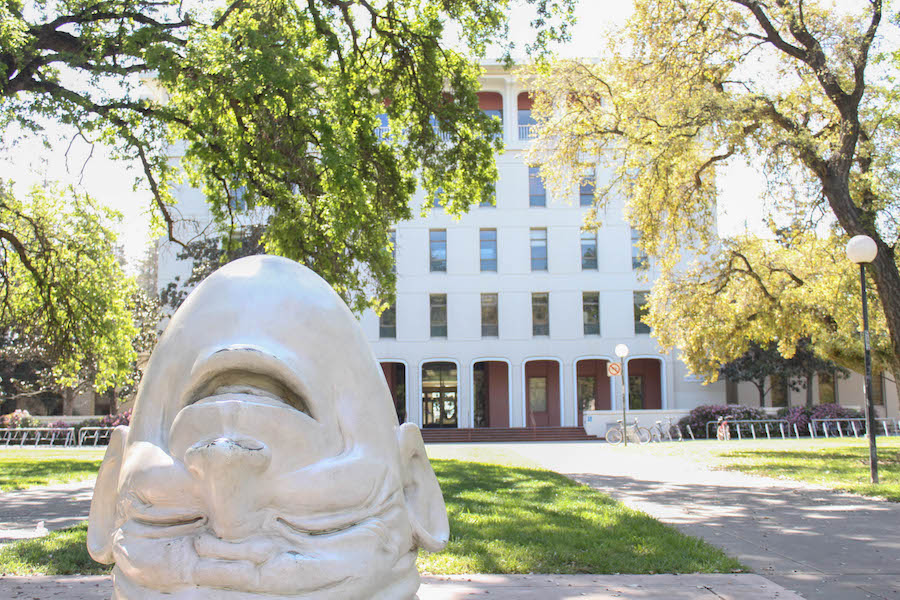
Mayor Robb Davis reaffirms that the City of Davis will not make any policy changes
President Donald Trump signed an executive order on Jan. 25 threatening to withhold federal funds from cities and counties designated as “sanctuary jurisdictions.” “Sanctuary jurisdiction” is a loosely-defined term used to denote cities and counties that choose to limit their cooperation with federal immigration agencies.
The controversial executive order, titled “Enhancing Public Safety in the Interior of the United States,” was met with immediate opposition. Many sanctuary cities have publicly stated that they will not change their policies.
The City of Davis has been a sanctuary city since 1986, and Mayor Robb Davis recently reaffirmed that the city will not change its policies or status. Other notable sanctuary cities include New York City, Chicago, Seattle, Los Angeles and San Francisco.
Davis explained that the City of Davis’ sanctuary policy is simple: police do not, under any circumstance, inquire about immigration status.
“The police will not ask, seek to know, or record someone’s [immigration] status in any interaction […] This is something that we’ve done, as many other cities have, to encourage trust in the police so that if something happens to someone, they’re not fearful of contacting the police,” Davis said.
Davis believes that President Trump’s executive order will make cities less safe.
“Imagine if you’re someone who is brought to this country, and you’ve been trafficked and you’re not here legally. Are you going to contact the police to save yourself? Maybe not. So I believe that this action [Trump’s executive order] will make cities less safe because people who are victims of crimes will not come forward,” Davis said.
According to Davis, the City of Davis is not breaking any laws in reaffirming its sanctuary city status and refusing to change its policies.
“Our police chief [and] our city attorney have stated unambiguously that we are following all state and federal laws and the Constitution by acting the way we’re acting,” Davis said. “We don’t have any concerns about the administration’s threats […] the Trump Administration is absolutely just blowing smoke. We’re not in a position where we’re going to be acquiescing simply because the president says we need to be an enforcement arm of immigration.”
Andrew Casas, a second-year English major, disagrees with Davis’ affirmation of sanctuary city status. He believes it contributes to division and polarization within the American political system.
“Whether you like Donald Trump or whether you dislike Donald Trump, he’s the President of the United States. It’s the same thing that happened with Barack Obama when the Republicans were in Congress; he was trying to do his best and people just kind of screwed him over with ‘no, we’re not going to pass any of his bills’ […] We should be working with the president to do our best to make the best America possible,” Casas said.
Jessica Angel-Gonzalez, a fifth-year animal science major at UC Davis, agrees with Davis’ stance on sanctuary city policies. She does not believe that anyone should be questioned about their immigration status by police if they are not breaking the law.
“For somebody to come around asking random questions like ‘Hey, are you a citizen here?’ It’s kind of none of their business. If they’re doing nothing wrong, then it shouldn’t be right for someone to [have to] show documentation. I’m completely against what Trump is trying to do with defunding the cities […] I think Davis is doing a good job by keeping this a sanctuary city,” Angel-Gonzalez said.
Sanctuary city policies protect undocumented immigrants from city and county law enforcement agencies, but they do not offer protection from federal law enforcement agencies. On Feb. 5, an undocumented immigrant living in Davis was arrested by Immigration and Customs Enforcement.
The individual in question had visited the Davis DMV office a few days prior to pay a ticket and apply for an Assembly Bill #60 driver’s license. AB #60, signed into California law by Governor Jerry Brown in 2013, makes it possible for someone to receive a California driver’s license without proof of legal residence.
The undocumented individual had multiple arrest warrants, and his AB #60 application prompted Immigration and Customs Enforcement to arrest him at his home a few days later.
The legality of President Trump’s executive order remains to be determined by the judicial system. Several sanctuary cities, including San Francisco, have filed lawsuits against the Trump administration over the order.
Written by: Raul Castellanos Jr — city@theaggie.org



